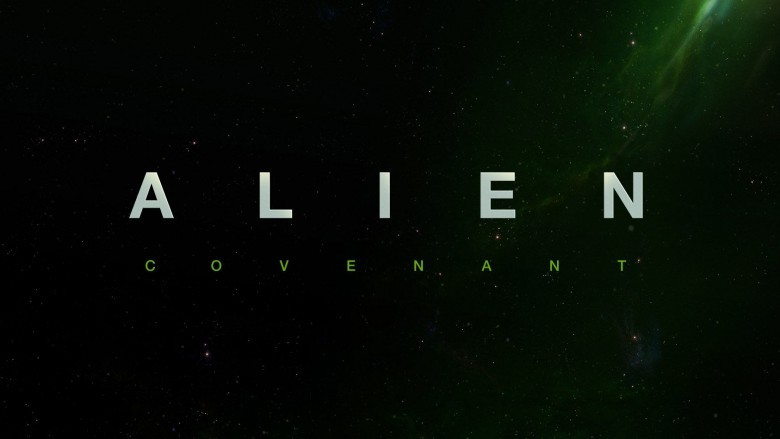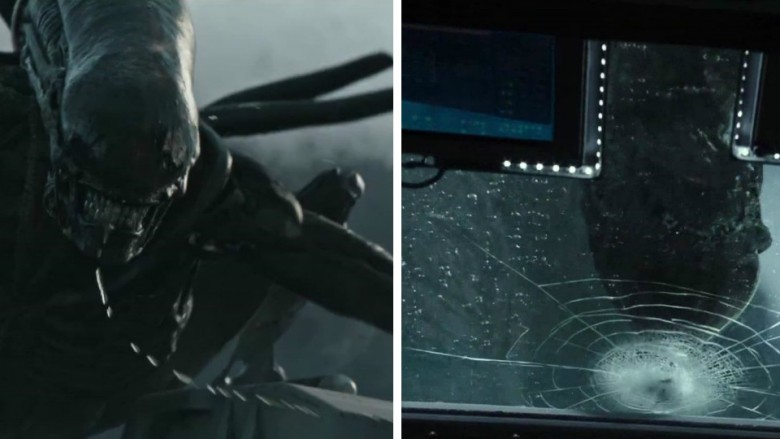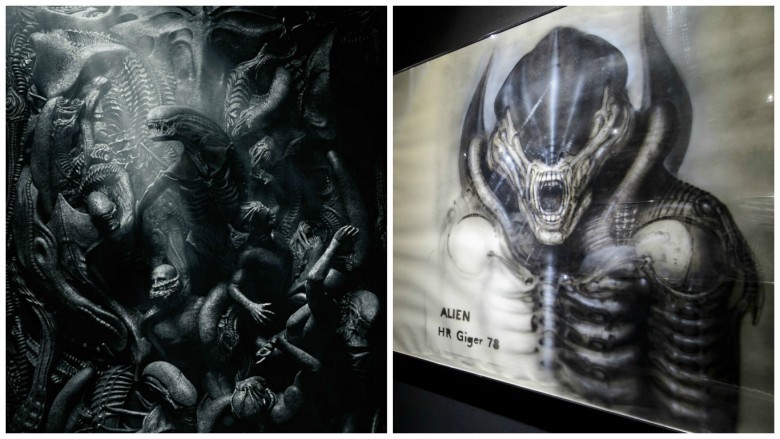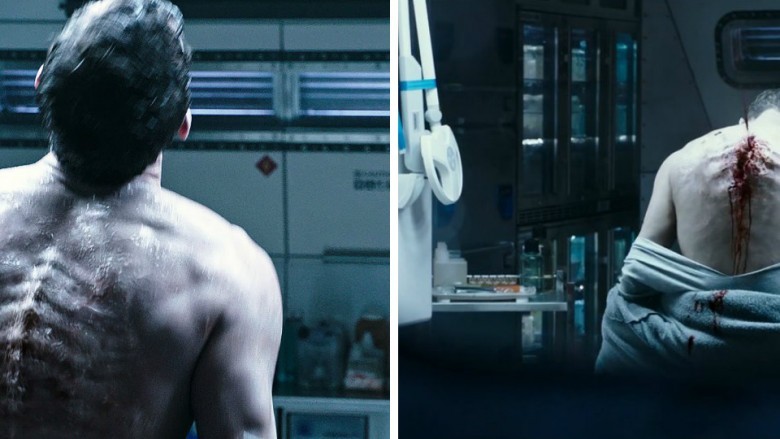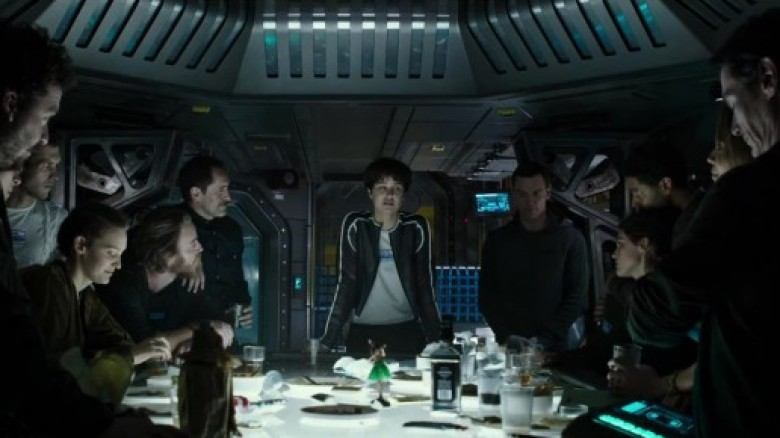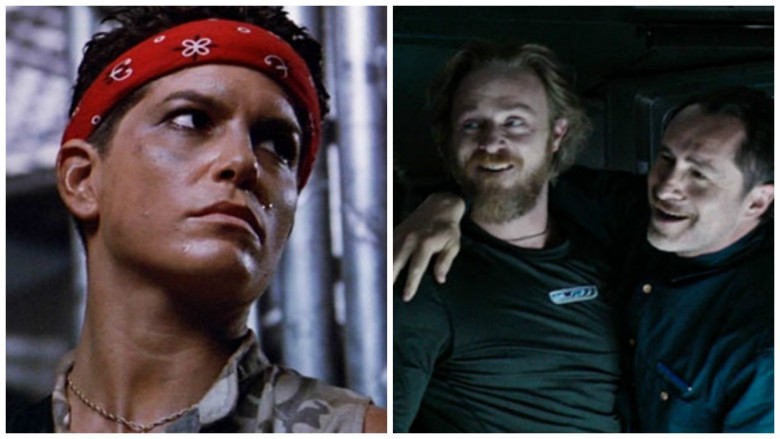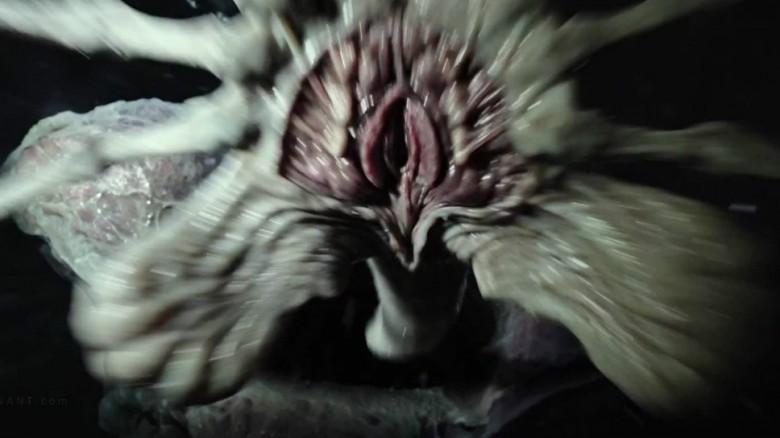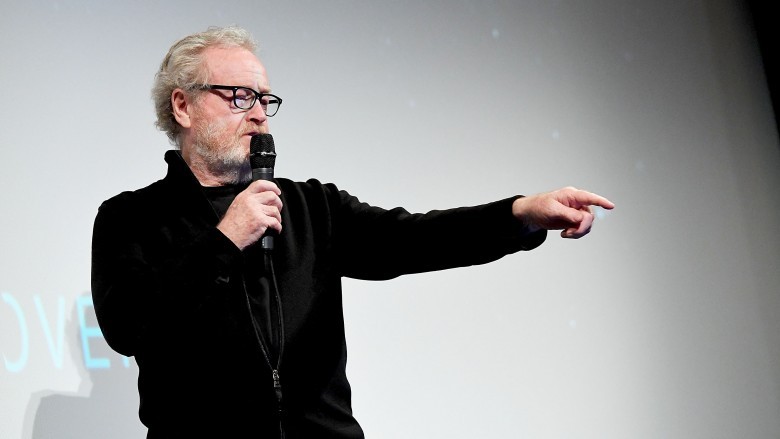Why Alien: Covenant Will Blow Everyone Away
Alien: Covenant hits theaters on May 19, and we couldn't be more psyched. Formerly known as Prometheus 2 and Alien: Paradise Lost, this latest installment in the Alien saga continues the story arc set in motion by 2012's Prometheus. Here's why this sci-fi horror flick is going to be a return to form for the Alien franchise—and a step forward from Prometheus.
Xenomorphs
While it may or may not be a traditional Alien movie, Alien: Covenant has one thing that Prometheus didn't—xenomorphs. Like the March 2017 poster for Alien: Covenant, the trailer is crawling with aliens. We've seen a facehugger spring from an egg, a new backburster Neomorph, and multiple shots of protomorphs and xenomorphs in familiar corridors, caves, a medical research room, and a jungle. There's even a staredown between a xenomorph and Danny McBride, with nothing but a window between them.
Promotional material is haunted by H.R. Giger's ghost--and that's a good sign
Visual artist H. R. Giger is gone now, but as long as the Alien franchise exists, his ghost will haunt it. The guy was into some spooky occult stuff. You don't make a book like Giger's Necronomicon and then peaceably surrender to death's cold embrace. You stick around and haunt stuff, starting with your very own museum in Switzerland.
Back when Alien: Covenant was Prometheus 2, however, Ridley Scott seemed intent on going in a new direction, stating publicly that the film wouldn't feature any xenomorphs at all. "The beast is done. Cooked." It's unclear what prompted the subsequent about-face; perhaps Scott realized that Giger's involvement in Prometheus was its saving grace. Say what you want about the directing, script, acting, and characters, that movie is visually dazzling.
Giger's Alien aesthetic (slime, biomechanics, a metallic black and blue palette, smooth appendages, skeletal hinges, womb-like enclosures, oblong passageways, and so on) is an intrinsic part of the franchise, and from the looks of things, Scott and his team have made peace with the Star Beast. Alien: Covenant represents a step in the right direction with regards to honoring Giger's legacy and keeping his ghost happy.
Alien Covenant returns to Alien's "body horror" roots
Based as much on screenwriter Dan O'Bannon's Star Beast script as H. R. Giger's iconic concept art, the xenomorph's anatomical anomalies inspire visceral dread in audiences. This is, of course, by design. As O'Bannon said in a 2002 retrospective, "[With Alien,] I'm going to attack the audience. I'm going to attack them sexually." (Settle down, fella.) Like other great "body horror" movies, Alien exploits moviegoers' fears of being physically violated via grotesque imagery and perverse juxtapositions. Alien: Covenant's trailers and other promo material make prominent use of the series' strongest quality—its clever use of "body horror" tropes.
The new crew of unlucky spacefaring colonists looks promising
Did you care when the worm-viper thing took down its first victim in Prometheus? Or were you too busy wondering, like the folks over at CinemaSins, why a group of scientists removed their helmets on an alien planet just because the air appeared to be breathable? (Forget about the risk of asphyxiation. Aren't they afraid of getting fired for skirting safety regulations? Do OSHA's rules about PPE cease to apply once you've left Earth?) As Forbes's review put it, the characters in Prometheus "do ridiculously dumb things. When they see black alien ooze, they touch it. When they find a giant severed alien head, they bring it on the ship and perform inexplicable experiments on it in an open environment with no protective clothing." They're supposed to be scientists, and yet they behave like idiots, so it's hard to care when they die.
That said, Alien included some scientific pontificating—and some foolish decision-making, for that matter—but it was always grounded in the crew's mutual experience of working for a big corporation that treated them as expendable. The bond they shared with each other was both professional and personal. The Nostromo's fate was horrific because audiences cared about Ellen Ripley, Dallas, Lambert, Kane, Parker, and Brett.
By all appearances, Alien: Covenant corrects Prometheus's biggest misstep—the aloofness of its crew of scientists and specialists, which made them hard to sympathize with. In the "Prologue: Last Supper" clip, the new crew lets loose and throws a party to celebrate being the first colonists on the mysterious planet to which they're headed. Recasting the main characters as colonists aligns it more closely with Scott's original film, and that's good news.
LGBT representation (finally)
Not to downplay the compelling ambiguity of Vasquez in Aliens, but there's never been an openly gay character in the Alien franchise—until now. The colonists have volunteered as couples. (Leaving the Earth and everyone on it seems a little easier if you're traveling with your one true love.) Among them is an affectionate gay couple.
The xenomorph's rape-like reproduction habits and its indifference towards its victims' sexual identity and gender reflect the horrible fact that rape can happen to anyone, regardless of sexual preference. If it's done right, the onscreen loving relationship between two men in Alien: Covenant could really expand the series' appeal. LGBTQI visibility is always a good thing, but it's essential in "body horror" movies, a genre that exploits fears about bodily violation—fears that are all too often tangled up with homophobia in horror movies.
Composer Jed Kurzel
Jerry Goldsmith and Lionel Newman's incredibly tense score set Alien apart from other horror movies, and if Alien: Covenant seeks to recapture the feel of the first movie, it'll need a comparable score. We think composer Jed Kurzel is up to the task. (You might know him as the lead singer of the Mess Hall.) He knows how to create tension, and he's amassed a serious résumé: he scored his brother Justin Kurzel's 2011 psychological horror movie Snowtown, helping to make that movie profoundly unsettling. Say what you will about the rest of Assassin's Creed, but Kurzel's epic score was undeniably solid. As the trailers for Alien: Covenant show, Kurzel lets the onscreen action influence his music, allowing for low ambient tones in dark tense sequences, stretches of silence during conversations, and sweeping anthemic accompaniment for the action-horror set pieces.
Practical effects
Ridley Scott is known for having a healthy distrust of CGI effects. What does that mean for Alien: Covenant? More of the classic creature-feature practical effects that made Alien so frightening. To horror fans who can't help but laugh at CGI monsters, this is welcome news. For the Alien and Prometheus franchises, it's another step towards atoning for the godawful computer-manipulated xenomorph puppets from Alien 3.
Ridley Scott knows what he's doing, even when he doesn't
We're confident that Ridley Scott will do right by fans of Alien—and fans of Prometheus. There's a lot riding on Alien: Covenant. Pending Covenant hitting the sweet spot in terms of box office grosses, he's promised to make up to four more Alien movies.
As James Cameron put it in a 2017 interview, even "not-so-great" Ridley Scott films are worth seeing "because he is such an artist."Nobody is going to argue that Kingdom of Heaven, White Squall, 1492: Conquest of Paradise, Legend, G.I. Jane, or Black Rain are better than The Martian, Blade Runner: The Final Cut, Gladiator, Thelma and Louise, or Black Hawk Down. But the worst Ridley Scott movie is still at least intermittently compelling, and we don't expect that to change anytime soon.
